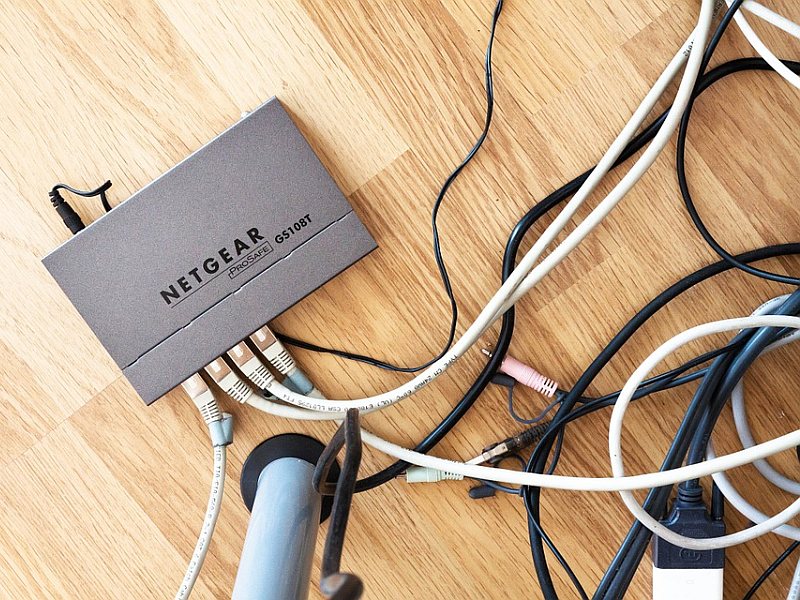- Home
- Internet
- Internet Opinion
- Net Neutrality Laws Need Strengthening Around the World
Net Neutrality Laws Need Strengthening Around the World

From a non-issue to most people, net neutrality has gone on to become a hot topic around the world, including in India, in the last year or so. Despite the growing importance of the subject though, there is still no real consensus on what it means. A simple explanation of net neutrality is that it means all data is treated equally - no one is prioritised in terms of speed, or the cost to access. That might sound simple enough, but for a number of reasons, it's not what has been happening, to the point where laws have been brought into place around the world.
When you look at the regions that are most active online - the US, Europe, India, and China - you see that there aren't always laws in place, or where laws exist, loopholes are already present and being made use of as well. Here's a look at what the scenario is like, around the world.
USA
The US was one of the first countries where net neutrality became the centre of a huge debate. The issue really came to the fore when it was revealed that Internet providers such as Verizon had asked Netflix to pay extra to deliver its video. Suddenly, net neutrality wasn't just an academic concept - it was directly talking about how people used the Internet.
The American Federal Communications Commission (FCC) received 3.7 million comments on net neutrality, and in 2015, issued what it called the Open Internet Order.
The FCC's rules were pretty straightforward. ISPs were not allowed to block or throttle (slow access to) any form of content, or to create any paid prioritisation of content. These are hard and fast rules, but on the subject of zero rating - that is to say, access to data that the content owner pays for instead of the user - it chose to decide on a case by case basis.
This loophole appears to have been heavily exploited in America, when you look at the offerings from some of its biggest Internet service providers. T-Mobile for example, has two programs, Music Freedom and Binge ON, which respectively let you listen to music and to watch videos, without the consumption being counted against your monthly data quota.
Music companies and video providers can partner with T-Mobile to be a part of these services, and according to T-Mobile, there is no charge - the providers only need to comply with its technical requirements.
Verizon on the other hand has a service called FreeBee Data - a paid zero rating platform that companies can make use of. Unlike Music Freedom or Binge ON, where it can be argued the platforms are open to all users, in the case of FreeBee, it's clear that companies with deep pockets will have an unfair advantage.
The problem deepens in the case of Comcast and AT&T. The former has exempted its Stream TV video on demand platform from counting against your data caps, and AT&T recently acquired DirecTV, and is exploring an OTT offering. It doesn't take a lot of insight to realise that this probably will be exempt from data caps too.
It's debatable whether all of these are in violation of net neutrality, but the last two certainly appear that way. For now though, the American FCC hasn't done anything about this.
India
If Netflix was the driver of Net Neutrality debate in America, Facebook can take the credit for that in India. Facebook's Internet.org, which was later rebranded to Free Basics, stirred up a huge net neutrality debate in India.
Before Facebook, Airtel had already got the ball rolling, thanks to a controversial plan to charge extra for Skype calls, and then a zero rating program to be launched with Flipkart, both of which were rolled back in short order.
After a lot of public debate, the Telecom Regulatory Authroity of India (Trai) released its net neutrality rules for India.
In February, Trai published the new regulations titled the "Prohibition of Discriminatory Tarriffs for Data Services Regulations, 2016," where it rejected differential pricing, whether it was charging extra for certain types of content, or zero-rating data access.
Trai's ruling was nearly universally praised, though some raised concern that it allowed Internet providers to zero-rate access to content served via intranets. It's exactly this that most Internet providers seem to be focusing on now - for example, Airtel is seeking approval to sign a business deal with an international video content provider, to deliver content over a closed network. This would enable it to send video content without charging for the data usage, and still comply with Trai's rules.
Similarly, the whole host of media apps from Reliance Jio appears to be on intranets, exclusively available to Reliance Jio customers. A source close to the company said that data used by Reliance Jio apps would be zero rated.
Trai has stated that any move to explicitly circumvent the net neutrality rules will be penalised, but as has been observed in America, a case by case review doesn't always work out. Will the same hold true for India? It seems possible at the moment.
Europe
Until now, you might be thinking that things aren't that bad. The US and Indian laws seem to cover most of the areas with only a few gaps. On the other hand, Europe has rules that openly kill net neutrality. Zero rating is fully legal, and that's not all, ISPs can also club together applications on dedicated Internet lanes. So, for example, video calling could be given a fast lane, while a torrent client might be restricted to lower speeds. This has been debated but the European Parliament rejected amendments that looked to protect net neutrality.
Europe's net neutrality rules have some many exceptions and some are vaguely termed, even if European telecom operators would like you to believe otherwise.
China
Although China has one of the largest Internet populations in the world, net neutrality seems like a bit of a forlorn hope in a country which also has widespread censorship of the Internet.
The closed nature of the Internet has helped create multi-billion enterprises in China, namely Baidu, Alibaba, and Tencent, but one has to question whether net neutrality would actually help those companies today. Few of these companies have been able to compete globally, though there are some obvious exceptions such as WeChat (in instant messaging) or DJI (in drones). It's hard to say, but it's possible that for other Chinese companies, having a free and open Internet could have been a major disadvantage, something that Foxconn CEO Terry Gou also suggested during a visit to India.
What becomes obvious as you see the situation around the world is that although most would agree about the importance of net neutrality, the laws in place aren't as strict as some would hope, and companies are proving to be adept at working around them, across the globe. If net neutrality is to be taken seriously, it seems the laws need to be strengthened.
Get your daily dose of tech news, reviews, and insights, in under 80 characters on Gadgets 360 Turbo. Connect with fellow tech lovers on our Forum. Follow us on X, Facebook, WhatsApp, Threads and Google News for instant updates. Catch all the action on our YouTube channel.
Related Stories
- Samsung Galaxy Unpacked 2025
- ChatGPT
- Redmi Note 14 Pro+
- iPhone 16
- Apple Vision Pro
- Oneplus 12
- OnePlus Nord CE 3 Lite 5G
- iPhone 13
- Xiaomi 14 Pro
- Oppo Find N3
- Tecno Spark Go (2023)
- Realme V30
- Best Phones Under 25000
- Samsung Galaxy S24 Series
- Cryptocurrency
- iQoo 12
- Samsung Galaxy S24 Ultra
- Giottus
- Samsung Galaxy Z Flip 5
- Apple 'Scary Fast'
- Housefull 5
- GoPro Hero 12 Black Review
- Invincible Season 2
- JioGlass
- HD Ready TV
- Laptop Under 50000
- Smartwatch Under 10000
- Latest Mobile Phones
- Compare Phones
- OPPO A6v 5G
- OPPO A6i+ 5G
- Realme 16 5G
- Redmi Turbo 5
- Redmi Turbo 5 Max
- Moto G77
- Moto G67
- Realme P4 Power 5G
- HP HyperX Omen 15
- Acer Chromebook 311 (2026)
- Lenovo Idea Tab Plus
- Realme Pad 3
- HMD Watch P1
- HMD Watch X1
- Haier H5E Series
- Acerpure Nitro Z Series 100-inch QLED TV
- Asus ROG Ally
- Nintendo Switch Lite
- Haier 1.6 Ton 5 Star Inverter Split AC (HSU19G-MZAID5BN-INV)
- Haier 1.6 Ton 5 Star Inverter Split AC (HSU19G-MZAIM5BN-INV)

















